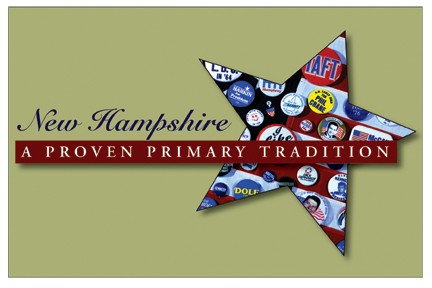
So what are we watching? Just what is the point of these extended quadrennial primary rituals, lasting for a year or more, that lead up to the selection of a national leader? Questions like these are often raised in a presidential
election year, usually by people who maintain that all the fuss and bother are unnecessary — that a presidential campaigns is a tale told by an idiot, full of sound and fury and signifying nothing.
We don’t deny that an idiot or two may be in the primary mix this year, along with a surplus of blowhard rhetoric. But that’s the point of these endurance contests. Presidential primaries are the boot camps of American democracy. Whether by conscious design or not, they go on long enough to winnow out the pretenders, to root out the unfit, and to expose and expunge fringe candidates and fuzzy philosophies.
The process usually works out that way, anyhow — although the advent of omnipresent social media have arguably taken everything to an extreme, replete with hasty judgments and complicated tangents. But in the age of Citizens United, the handheld media also offer the best — perhaps the only — corrective to outright control of things by a moneyed oligarchy.
The difference between the American political system and most of the regimes in other countries that also call themselves democracies is rooted in the very wear and tear that critics of the process deplore. We do not — as, say, Great Britain does — allow for a change of leadership based on haphazardly scheduled and quick-running special elections or on votes by party caucuses. The Constitutionally ordained calendar of a national election every four years, and only every four years, necessitates the prolonged period of advance testing our would-be leaders are forced to go through. It also provides a means whereby outsiders have time to convert themselves into insiders.
And it works for both sides of the political dividing line. Small-town Democrat Jimmy Carter was able to break into what had been a preserve of big-state establishments and urban bosses, and his successor, Republican Ronald Reagan, came from the other direction, as a self-made man from the entertainment world into a hierarchy long controlled by corporations. This year’s candidate field has yielded even stranger prospects — of a TV celebrity on the GOP side and a bona fide (democratic) socialist on the Democratic side.
Ironically, Donald Trump’s own colossal fortune allows him, for better or worse, to circumvent the wishes of his party’s corporate elite, and Bernie Sanders has employed the simple force of ideas and the nickels and dimes of a mass following to make the special interests of his party pay heed. And, if they don’t succeed, whichever two candidates eventually become their party’s nominees will have been influenced by these two outliers.
It’s a messy process this year, to be sure, but then it always is. And, arguably, it works as well as anything else that has so far been dreamed up.